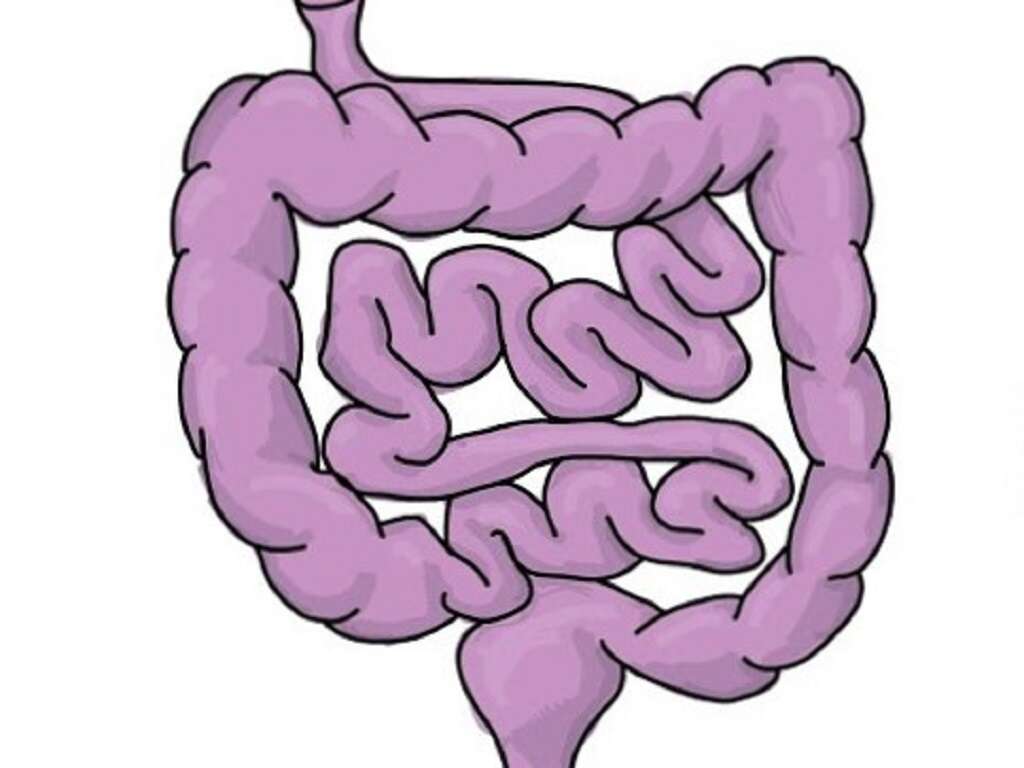What Is Dumping Syndrome?
Dumping syndrome is a condition that occurs in people that have just had surgery on their digestive system. Usually, food will enter into the stomach where it will wait until the small intestine is ready to receive and process it. In dumping syndrome, however, the food will pass straight through to the small intestine faster than usual.
This results in a number of unwelcome symptoms. One symptom is a rise in blood sugar levels, and late dumping syndrome means low blood sugar levels because of the excess production of insulin that was created to handle the high levels of sugar. Treatment mainly includes managing what you eat and how much, and the symptoms should gradually subside as the body adjusts to the surgery.

1. Bloating
There is nothing unusual about feeling bloated after eating a large meal. Our stomachs can only hold so much food and gas will also be produced as a result of the food being broken down. Some medical conditions, however, can make us feel bloated more so than is usual. Many patients with dumping syndrome will find that they feel bloated far more easily than they usually would. This can be quite uncomfortable at times and they might need to exercise more control over how much they eat. The symptom is a direct result of food and stomach juices moving into the small intestine too quickly.

2. Nausea
Have you ever eaten a large meal and felt nauseous afterward? It is usually down to having eaten too much food and it is fairly easy to do. After all, it can be difficult to say no to more when we are enjoying a delicious meal. People that have dumping syndrome will often find that they feel nauseous just after they have eaten a meal.
With the food moving through the small intestine too quickly, the body experiences the same sensation as being too full, and this can make the patient feel ill. It does not necessarily follow to vomiting and the patient is likely to start feeling better when the food has had an opportunity to process.

3. Vomiting
Many species have evolved to be able to vomit; it is something that can be very beneficial to us under certain circumstances. If we were to eat something that is toxic, for example, then vomiting will help to eject the toxin to minimize the damage that can be done.
We will also sometimes vomit if we are too full and this can happen often in people that have dumping system. Managing how much you eat can help to prevent this symptom from occurring. It is also important to make sure the patient still gets enough nutrition if they are vomiting often.

4. Diarrhea
In addition to the fluids that we drink, our food also contains water. The water from what we eat and drink is absorbed into the body by the digestive system and it takes a while for this water to be absorbed. If the body does not get enough time to absorb the water then it will be passed out of the other end.
Dumping syndrome causes food to pass through the body too quickly, meaning that not enough water is absorbed. This results in the unpleasant but well-known symptom that we know as diarrhea. Anybody that is experiencing this needs to be careful that they don’t become dehydrated.

5. Flushing
Some people will find that, after a big meal, their face will flush red in color and they might also feel hot in the face. This is not uncommon and is not a symptom that should alarm anybody. It is also something that a lot of people with dumping syndrome will experience.
For people that have dumping syndrome, eating can cause spikes in blood sugar levels and other chemicals in the body. This can result in dilated blood vessels, making the skin appear redder than it usually would be. The symptom will usually pass having done no permanent damage at all.

6. Rapid Heart Rate
Some people might find that their heart rate increases noticeably just after they have eaten a big meal. Again, this is not necessarily something to be concerned about, provided the heart is not beating too quickly and that their blood pressure is kept within safe levels.
This symptom occurs quite often in patients that have dumping syndrome. Again, the influx of food directly into the small intestines can play havoc with blood sugar and chemical levels, and this can cause the heart to start racing. This can often be controlled by managing how much food you eat in any one sitting.

7. Stomach Cramps
Pretty much everybody has experienced pain in the stomach at some point in their life. It can happen relatively easily if we are not careful and it is largely a matter of being mindful of what you eat and how much. Eat carefully and you should hopefully avoid the problem, unless you fall ill.
Stomach cramps are also a fairly common symptom among people with dumping syndrome. People with the condition are more sensitive to certain foods, and are also more sensitive to having eaten too much. It is best to eat regularly but in smaller amounts to help overcome the issue.

8. Sweating
We usually sweat when we are too hot. We have evolved to do this in order to regulate our body temperature but it can be bought on by other factors. People with dumping syndrome might have noticed that they are prone to sweating after they have eaten a large meal.
This will occur due to the drop in blood sugar levels during late dumping syndrome. This is when the blood sugar levels drop after being high because excess insulin has caused them to plummet. Decreased blood sugar levels mean that messages to the sweat glands become confused, and the body can begin to produce excess sweat as a result.

9. Weakness
Our body gets much of its energy from the carbohydrates that we eat, and this includes sugar. Sugar is present in our food in a variety of forms and it is processed to help power our cells. This means that when our blood sugar levels drop, there is less energy available with which to power our body.
This results in us feeling weaker than we usually would, despite us having just eaten. This is a symptom of late dumping syndrome and people with the condition will need to try and manage their food intake if they want to prevent it.

10. Dizziness
If you have not eaten enough then you might start to feel dizzy as a result. This is because the body does not have the energy that it needs and the brain is not getting enough fuel. Getting something to eat will often help you feel better, and lack of food is not the only thing that can cause dizziness.
In late dumping syndrome, the patients low blood sugar levels will mean that the patient is low on energy, and this can lead to dizziness. Once the patients blood sugar levels have returned to normal levels then the dizziness should subside.












